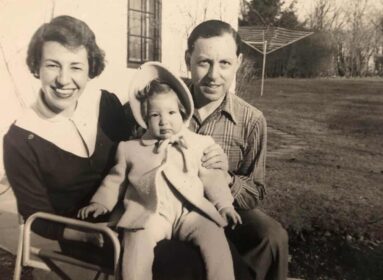NEW HAVEN – Chana Weinstock of New Haven is among 34 college students selected from across North America, South Africa, and New Zealand to participate in a newly accredited service-learning program hosted by Yeshiva University (YU). Weinstock is a student at YU.
Counterpoint Israel is a month-long initiative of the university’s Center for the Jewish Future (CJF) that aims to empower the next generation of Israeli youth via a Jewish values-driven summer-camp experience.
This year, the university redesigned the program so as to allow participants to earn graduate-level credits. YU is now the world’s first institution to offer an accredited program for Jewish service-learning.
Now in its sixth year, Counterpoint Israel has doubled in size this summer, with camps operating in Dimona, Arad, and Yemin Orde from July 12 to Aug. 18. The existing program in Dimona and the new camp in Arad include classes given in English and workshops in arts, fashion, music, dance, and sports, all with the goal of improving the students’ English skills while promoting a positive self-image and traditional Jewish values.
The Yemin Orde program is run as an overnight camp hosted at YU’s Israel campus in Bayit V’Gan. Programming will address the specific needs of the Israeli teens residing in the Yemin Orde Youth Village, following their firsthand experiences with the devastation caused by the Carmel forest fire in December.
Weinstock, who just completed her sophomore year at Stern College for Women in Manhattan, is working in Dimona. A long-time member of the New England Region of National Conference of Synagogue Youth (NCSY), she served as an advisor over the past year.
“I decided to take part in the Counterpoint Israel Program because working with teenagers is something I love doing,” she says. “Working with teenagers to help them appreciate their talents is something I strongly believe in doing, so this program seemed like a perfect fit. In addition, I love Israel, so having the opportunity to work with kids in Israel was extremely appealing to me.”
Weinstock hoped to develop a better understanding of the lives of those she works with in Dimona, a development town in the Negev Desert. “I feel like these children deserve as much as any other child does, even while they might not have all of the same opportunities as we have had in America,” she says. “I wanted to gain an appreciation for each and every child I worked with. I realize how even kids from a poor development town can really teach educated college students so much. I guess you can say I went in with high expectations, but they have most certainly been met.”
Among the most rewarding aspects of the work is seeing students become more confident. “There’s one girl who never thought she could speak English and would always pass when we asked her to read from the board,” she says. “Now, however, she pretty much always speaks to me in English. Another one of my students writes down every English word we put on the board, even though he doesn’t have to and even though some words aren’t even part of the lesson. One kid in camp was always very aggressive but now I’ve seen him really come to control his anger and hold himself back from responding to those who try to instigate fights. The list of highlights just goes on and on.”
Weinstock says she is most surprised by how much the kids want to learn and interact with the YU counselors. “I have one student who, after every project or worksheet, calls me over to look at it and give him praise,” she says “Coming into the program, I was slightly skeptical as to how much these kids would really even want to relate to us American students, but they’ve proven me very wrong. They seem to love us and care very sincerely about what we think of them, and I must say that the feeling is mutual.”
SHARE







 Southern New England Jewish Ledger
Southern New England Jewish Ledger














